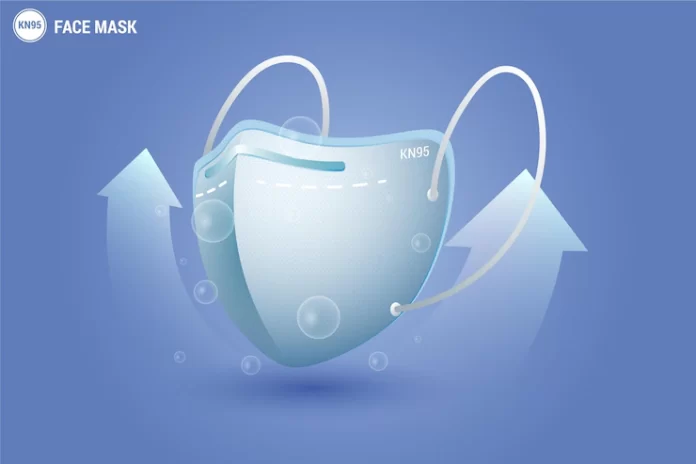Researchers in the United States have developed a simple way for producing N95 face masks that are not only effective disease barriers but also germ assassins on contact.
Antiviral and antibacterial masks may be used for longer periods of time since they do not need to be replaced as frequently, resulting in less plastic waste.
“Hopefully, we are over the COVID pandemic,” said Rensselaer Polytechnic Institute’s Helen Zha, “but this sort of technology will become increasingly important.”
“The menace of airborne germs will not go away.” It’s past time to improve the performance and long-term survivability of the defense materials we use.”
The perfect recipe
The study was co-authored by Zha, an assistant professor of chemical and biological engineering and a member of Rensselaer’s Center for Biotechnology and Interdisciplinary Studies (CBIS), and Edmund Palermo, an associate professor of materials science and engineering and a member of Rensselaer’s Center for Materials, Devices, and Integrated Systems (CMDIS) (cMDIS).
Researchers are looking for the best formula for developing face masks in order to tackle infectious respiratory infections and environmental pollution.
“This was a complex materials engineering challenge with a terrific, diverse team of collaborators,” Palermo explained.
“We believe the study represents the first step toward longer-lasting, self-sterilizing personal protection equipment, such as the N95 respirator.” It may help to reduce airborne pathogen transmission in general.”
Antimicrobial-property polymers
In a recent work published in Applied ACS Materials and Interfaces, the researchers effectively grafted broad-spectrum antibacterial polymers onto the polypropylene filters used in N95 face masks.
“The active filtering layers in N95 masks are particularly susceptible to chemical modification,” Zha said.
“It has the potential to decrease their filtering capability to the point where they no longer function like N95s.” They’re made of polypropylene, which is difficult to modify chemically.
“Another issue is that you don’t want to damage the extremely fine network of fibers in these masks, which might make breathing through them more difficult.”
Zha and Palermo worked with Rensselaer Polytechnic Institute, Michigan Technological Institute, and Massachusetts Institute of Technology researchers.
The researchers covalently bonded antimicrobial quaternary ammonium polymers to the fiber surfaces of nonwoven polypropylene fabrics via UV-initiated grafting.
The fabrics were provided by Hills Inc., courtesy of Rensselaer graduate Tim Robson.
COVID-19
Thanks to National Science Foundation Rapid Response Research (RAPID) funding, Zha and Palermo began their research in 2020, when N95 face masks were limited.
Even single-use masks were being reused by healthcare workers. Face masks of various types are already widely available in 2022.
However, COVID-19 prevalence is high, another pandemic is a distinct possibility, and single-use, disposable masks are piling up in landfills.
“It’s a good approach to attach chemical groups that destroy viruses or bacteria when they come into touch with polypropylene,” said Shekhar Garde, dean of Rensselaer’s School of Engineering.
“Given the amount of polypropylene in everyday life, this technique may be successful in a variety of settings.”











